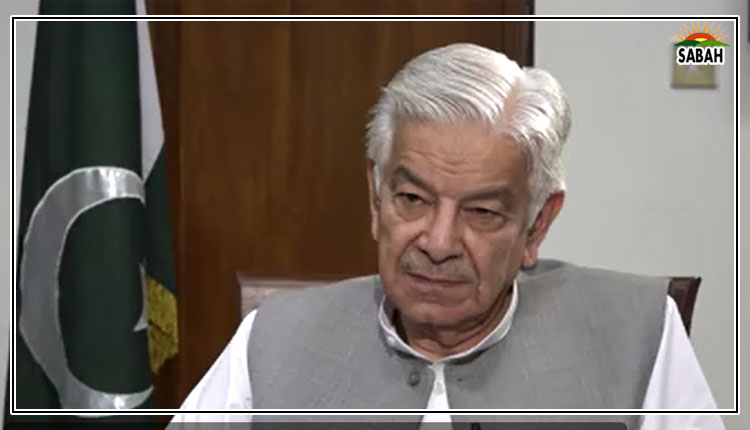Building a Stronger Pakistan Through Standardization by Muhammad Mohsin Iqbal
World Standards Day is a global occasion celebrated annually on October 14th, aimed at recognizing the crucial role of standards in advancing economies and enhancing quality of life. Standardization, which involves creating uniform technical norms and guidelines, impacts nearly every aspect of modern life, from the safety of products we use to the quality of services we depend on. For countries like Pakistan, where the journey toward economic development is ongoing, the significance of adhering to and establishing robust standards cannot be overstated.
In Pakistan, the concept of standardization is gradually gaining momentum, but there are challenges that need urgent attention. The Pakistan Standards and Quality Control Authority (PSQCA) is the national body responsible for setting, implementing, and monitoring standards across various sectors. However, the adoption of standards in the country has often been slow, hampered by both a lack of awareness and insufficient enforcement mechanisms. To achieve sustainable development, Pakistan must fully embrace the principles of standardization across all sectors, including agriculture, manufacturing, healthcare, and services.
Standardization in Pakistan has a critical role to play in enhancing the quality and safety of goods and services. With Pakistan’s economy heavily reliant on exports, particularly textiles, sports goods, and agricultural products, the quality of these exports must meet international standards to remain competitive in the global market. Pakistani exporters have often faced challenges in meeting the technical requirements set by foreign markets, leading to rejected shipments and a tarnished reputation. By enforcing strict compliance with international standards, Pakistan can improve the quality of its exports, increase market access, and boost its economic growth.
Furthermore, standards play an essential role in ensuring public safety and welfare. In sectors such as healthcare, construction, and food safety, non-compliance with standards can have dire consequences. In recent years, there have been multiple instances where substandard products, such as adulterated food or unsafe building materials, have led to public health crises and accidents. Strengthening the implementation of standards in these sectors can help prevent such incidents and improve the overall quality of life in Pakistan.
The success of standardization efforts in Pakistan will depend on several factors. First and foremost, there is a need for widespread awareness among businesses and consumers about the benefits of adopting standards. Many small and medium-sized enterprises (SMEs) in Pakistan are either unaware of the existence of relevant standards or view them as an unnecessary burden. The government, in collaboration with industry associations, must take the lead in educating these businesses on the long-term advantages of complying with standards, including improved efficiency, reduced costs, and enhanced customer trust.
Additionally, standardization efforts must be backed by a robust legal and regulatory framework. Although PSQCA has been tasked with enforcing standards, the authority often lacks the resources and manpower to effectively monitor and regulate compliance. Strengthening this institution, providing it with adequate funding, and ensuring that its policies are aligned with international best practices is essential for the success of Pakistan’s standardization initiatives. Moreover, the government must crack down on the counterfeit market, where substandard goods continue to flood the market, undermining the efforts of legitimate businesses that adhere to quality standards.
Looking at the global perspective, different countries have adopted various approaches to standardization, depending on their unique economic structures and development goals. In Europe, for instance, the European Committee for Standardization (CEN) ensures that products and services comply with high-quality standards, which are then uniformly adopted by member states. The strength of Europe’s standardization system lies in its harmonization across borders, which facilitates trade and economic cooperation within the region. European companies benefit from a clear set of regulations that make it easier to access different markets and promote consumer safety.
In the United States, the National Institute of Standards and Technology (NIST) plays a key role in setting standards across industries. The U.S. has adopted a more decentralized approach to standardization, where industry-led standardization bodies develop technical specifications, with the government stepping in only when necessary. This flexible system allows for rapid innovation while ensuring safety and quality through compliance mechanisms. American companies often collaborate closely with international bodies like the International Organization for Standardization (ISO) to align their products with global standards, which enhances their competitiveness.
China, on the other hand, has used standardization as a strategic tool in its rapid industrial development. The country’s aggressive pursuit of setting and controlling international standards, especially in emerging fields like 5G technology, has positioned it as a global leader. China recognizes that being at the forefront of standard-setting allows it to dictate the rules of the game in global trade and technology. Through its “China Standards 2035” initiative, the country aims to take a leadership role in the next generation of global standards, driving its technological dominance and ensuring that Chinese products are synonymous with high quality.
For Pakistan to overcome its challenges and succeed in standardization, it must look to these international models for inspiration while tailoring its approach to local realities. The government must foster public-private partnerships to incentivize the adoption of standards. By involving industry stakeholders in the development process, standards can be better aligned with the needs of businesses, leading to greater compliance. Additionally, Pakistan should seek to engage with international standardization bodies like ISO and CEN to ensure that its standards are globally recognized, facilitating smoother trade relations.
In conclusion, World Standards Day is a reminder of the indispensable role that standards play in modern economies. For Pakistan, embracing a culture of standardization is not just a matter of enhancing trade or improving product quality; it is about ensuring the well-being of its citizens and building a resilient, competitive economy. By learning from international best practices and addressing its unique challenges, Pakistan can make significant strides toward becoming a nation that thrives on the foundation of quality, safety, and innovation.












